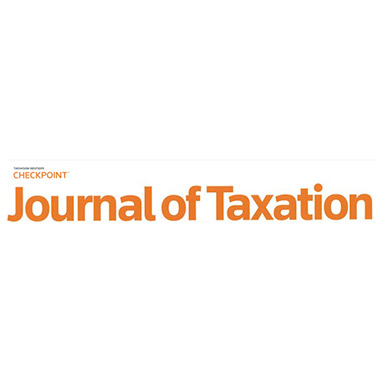The Internal Revenue Service’s (IRS) primary mission is to ensure taxpayers comply with tax laws and pay their taxes on time. In recent years, the IRS has increasingly relied on data analysis and technology to identify potential tax fraud and evasion.
As a result, criminal investigations conducted by the IRS have become more frequent and complex. These investigations can cover a wide range of tax-related issues, including false tax returns, money laundering, and offshore tax evasion. Understanding the intricacies of IRS criminal investigations is critical for attorneys representing clients under scrutiny. With the right defense, we can help protect your rights and assets in these high-stakes cases.
For your free case evaluation, call our tax criminal defense attorneys at McCormick Tax Law at (215) 630-0861.
Tax Crimes the IRS Typically Investigates
Taxation is a complex area of law, with numerous regulations and stipulations that individuals and businesses must adhere to. However, some individuals and entities intentionally or unintentionally fall into the trap of illegal tax activities, leading to serious repercussions. Being aware of these illegal activities can help individuals and businesses avoid falling into these traps. If the IRS does look into your finances, our tax criminal defense attorneys can help challenge the government’s case. The following are common tax crimes the IRS investigates:
Tax Evasion
Tax evasion is a type of tax fraud that occurs when an individual or business intentionally misrepresents their financial situation to the IRS in order to pay less in taxes. This can include activities such as underreporting income, exaggerating deductions, or hiding money and income in offshore accounts.
Tax evasion is a serious criminal offense, and those who engage in it can face significant fines, penalties, and even imprisonment. The IRS has a number of tools at its disposal to detect and investigate instances of tax fraud, including audits, subpoenas, and criminal investigations.
False or Fraudulent Returns
Another common type of tax fraud is filing false or fraudulent returns. This occurs when an individual or business provides false information on a tax return in order to either decrease their tax liability or increase their refund. There are numerous ways in which someone might do this, including falsifying personal expenses as business expenses, claiming false deductions, or failing to report all of their income.
Filing a false tax return is not simply a mistake or an oversight. It is a deliberate act of deception that carries severe penalties, including fines, interest, and even imprisonment. If you suspect you filed a false tax return, it is important to report it to the IRS immediately. You can do this by filling out Form 3949-A.
Illegal Tax Shelters
Illegal tax shelters have become a serious concern over the last few years. These schemes are designed to provide tax benefits not allowed under the law, often through complex investment strategies that are difficult for the average taxpayer to understand. Illegal tax shelters can take many forms, including using trusts, offshore transactions, or insurance policies to hide income or provide unwarranted tax deductions.
These schemes are often marketed to high-net-worth individuals or businesses as a way to reduce their tax burden, but they are illegal. They can result in severe financial penalties, including fines and even imprisonment. The IRS is constantly monitoring for illegal tax shelters and is committed to identifying and prosecuting those who engage in these fraudulent activities.
Employment Tax Fraud
Employment tax fraud encompasses several illegal activities related to employment taxes. This might include a business owner failing to withhold federal income tax or FICA taxes from employees’ wages or an employee providing false information to increase their allowances and decrease tax withholding. Both instances are considered serious offenses and carry stringent penalties.
Money Laundering
Money laundering, though not strictly a tax crime, often intersects with tax fraud. It typically involves processing illegally obtained gains to make them appear legal. Money launderers sometimes use complex networks of transactions to disguise the origin of funds, making it appear as though they have earned them legitimately. Money laundering is a serious federal crime and can carry severe penalties, including hefty fines and lengthy prison sentences.
Defenses to an IRS Criminal Investigation
Facing an IRS criminal investigation can be daunting, but a well-planned and executed defense strategy can make all the difference. The following defense strategies are among the most effective approaches to defend against criminal charges made by the IRS:
Challenge the Admissibility of the Evidence
One of the first lines of defense in an IRS criminal investigation is challenging the admissibility of evidence. The IRS must adhere to specific procedures when collecting evidence, and any deviation from these procedures could render the evidence inadmissible. For example, if the IRS obtained evidence through an unlawful search or seizure or coerced testimony, an attorney could move to suppress this evidence. Winning such a motion can significantly weaken the prosecution’s case.
Assert Lack of Criminal Intent
Many tax crimes require the government to prove that the defendant acted with specific intent to defraud the IRS. Therefore, asserting a lack of criminal intent can be a powerful defense. This strategy involves showing that any errors on a tax return were because of negligence, misunderstanding, or bad advice rather than intentional fraud. If taxpayers can show they relied in good faith on the advice of a professional, such as a CPA or tax attorney, they might avoid conviction for tax fraud.
Innocent Spouse Defense
The innocent spouse defense applies when one spouse or former spouse bears responsibility for a fraudulent tax return. If one spouse can prove they were unaware of the other’s fraudulent actions, they might be relieved of liability for the tax debt. This defense requires demonstrating that it would be unfair to hold the innocent spouse liable, considering all the facts and circumstances.
Statute of Limitations Defense
The IRS has a limited time to assess additional tax or initiate criminal proceedings, known as the statute of limitations. Generally, the IRS has three years to assess additional tax and six years to begin criminal proceedings for tax evasion or filing a false return. If the IRS initiates action after these timeframes, a defendant can assert the statute of limitations as a defense.
Plea Bargaining
When the evidence against a defendant is strong, plea bargaining might be the best strategy. This involves negotiating with the prosecutor to plead guilty to a lesser charge in exchange for a reduced sentence. Plea bargaining can help a defendant avoid the risk of a trial and the possibility of a much harsher sentence.
Our Attorneys to Defend IRS Criminal Investigations Are Here to Protect Your Rights
For a free review of your case with our tax criminal defense lawyers, call McCormick Tax Law today at (215) 630-0861.










